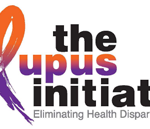

Advancing Rheumatology! may mean different things to the varied membership of the ACR. This is in part because the ACR is expected to do many things for many people, and I believe we do many things exceptionally well. I hope you will agree! Recent examples of our good work include the planned expansion of the ACR’s Simple Tasks public relations campaign website, the collaboration between the ACR and the Annual European Congress of Rheumatology to develop various classification criteria, and our concerted responses to changes in the healthcare environment to help our members continue to excel in practice and research, and to support their families.
This month, I would like to focus on another excellent product of the College: our ongoing cooperative agreement with the U.S. Department of Health and Human Services (HHS) that funds The Lupus Initiative (TLI). I am excited to share with you a review of the variety of resources available as part of TLI.
In the fall of 2009, the ACR began discussions with HHS, specifically the Office of Minority Health and the Office of Women’s Health, to develop what has grown into TLI. At the start of this project, the ACR was charged with the development of a lupus curriculum to reduce health disparities in the diagnosis and treatment of lupus. We convened ACR/ARHP members, our staff, volunteers of national and local lupus organizations, members of the pharmaceutical industry, and other stakeholders within the lupus community to assume leading roles in the creation of these learning materials.
After four-and-a-half successful years of notable collaborations, the lupus curriculum has been developed and has been augmented with the addition of a host of other state-of-the-art educational resources. As the cornerstone of our group of innovative educational tools in lupus, it is available for use by clinicians, rheumatology health professionals, educators, scientists, students, fellows, residents, and patients.
The Evolution of TLI Resources
TLI has evolved in stages. In year one, we focused on determining the goals of the project and the approaches needed to achieve them, while in year two, we underscored consensus and relationship building as TLI priorities. In year three, we moved forward in the creation and refinement of these resources. The hallmark of year four was the availability of our entire compendium of resources for providers and their patients. I want all of our members to be aware that these very high-quality materials exist and are completely free for their use, and for use by their colleagues. The collection of the ACR’s Lupus Initiative educational materials is available at your fingertips online at www.thelupusinitiative.org.
Highlights of these materials include:
- A suite of resources comprised of continuing medical education (CME) activities, essays, videos, self-assessments, and quizzes on the recognition and mitigation of bias—both conscious and implicit—in patient and provider populations. This series of activities, some of which offer free CME credit, is designed to bring awareness to members of the healthcare community about the impact of conscious and unconscious bias on healthcare, and how bias contributes to healthcare disparities. While awareness of bias is crucial for all aspects of healthcare, we think it is especially useful for persons with lupus and those who care for them. These resources were developed to increase knowledge of how to recognize and mitigate bias in the diagnosis, treatment, and management of lupus for diverse patient populations.
- An online, medical education simulation game, called “Practice Improvement using Virtual Online Training” (PIVOT). Developed with clinicians at the University of California at San Francisco (UCSF) and programming experts from the University of California at Berkeley, PIVOT provides experiential learning, tests skills in real time, and offers feedback in state-of-the-art interactive case studies developed in cooperation with the ACR. Featuring case enhancements designed to simulate a patient examination and encourage retention of newly learned information, actual patients are incorporated using photos and videos. Users can order lab tests, and results are “delivered” in real time. A learning dashboard comparing user selections to best practices as determined by a panel of experts is offered at the conclusion of each case.
- A data vignette and four traditional case studies, created in response to requests from clinicians and educators. The data vignette, developed with the National Center for Cultural Competency at Georgetown University in Washington, D.C., offers educators the specifics of a traditional case with additional enrichments, including talking and discussion points and references.
- A total of 11 short teaching videos (each between two and seven minutes long) also is available and can be incorporated into existing teaching materials or used as freestanding tools by those interested in self-directed learning. An additional benefit to the library of short videos on our TLI website is access to advice from internationally recognized thought leaders in lupus, who are featured in the series.
- A four-part video series, called “The Role of Perspectives in Care.” This series examines how shortcuts in the thinking of both patients and physicians may impact the diagnosis and treatment of lupus. Practical examples for recognition and mitigation are available, making this a unique opportunity for online learning.
- The Lupus Companion smartphone app. Developed with rheumatologists at Emory University in Atlanta, this app is the first of its kind for patients with lupus. Available at no charge at the iTunes store, the Lupus Companion was designed using criteria from the Systemic Lupus Activity Questionnaire to improve quality of care by enhancing patient–provider communication during office visits. The app allows patients to track lupus symptoms, triggers, and flares between visits, and captures those data in a format that is useful to medical professionals. The Lupus Companion is currently available only for the iOS platform, but we hope to see it become available for Android systems soon.
These are just a few of the many resources available through TLI. The next challenge will be to increase awareness of where they, and other ACR educational tools, can be found. We are eager to know who is using them, and how, so we can share the impact of that educational outreach in this forum and with the wider medical community.
The Power of One
Along with the resources listed above, the TLI curriculum is in use. In fact, portions of the curriculum and our other resources have been used in the education of students at several institutions, including, but not limited to: Baylor College of Medicine in Houston; Emory University; Northwestern University’s Feinberg School of Medicine in Chicago; Stanford University in Stanford, Calif.; the UCSF Colleges of Medicine; and the Harlem Hospital Center in New York, N.Y. Educators at other institutions have reported plans to use TLI materials, and formal data gathering is underway to quantify the positive feedback heard anecdotally. This leads me to the last point I’d like to make this month about Advancing Rheumatology! and the impact one person can have in a program like TLI.
Recently, TLI initiated a plan to identify and promote “champions” to encourage adoption and use of TLI materials in training students and medical professionals in educational activities around the globe. Here are just a few of the ways our many champions reported using TLI materials in 2013:
- Graciela Alarcón, MD, MPH, of the Minority Health and Health Disparities Research Center University of Alabama at Birmingham, presented:
- A grand rounds for internists, family practitioners, and pediatricians at Mercy Hospital in Chicago; and
- International lectures in Medellin, Colombia, and Asuncion, Paraguay.
- Stacy P. Ardoin, MD, MHS, incorporated TLI materials into The Ohio State University Medical School curriculum for first-year medical students.
- Amanda M. Sammut, MD, of the NYC Health and Hospitals Corporation (NYCHHC) led:
- A grand rounds for 50 residents and attendings;
- A lecture to 30 residents;
- A lecture to eight MDs and NPs from a NYHHC clinic; and
- A lecture to about 20 MSWs, RNs/NPs and MDs at a community-based health system.
- Audrey Unknis, MD, presented a lecture to medical students at a regional meeting of the Student National Medical Association (SNMA) held at Temple University School of Medicine in Philadelphia.
While this list only mentions a few of the many individuals who have used TLI resources to champion lupus education among healthcare professionals, it is a powerful demonstration of the influence champions can have around a single disease state and why it is important for ACR/ARHP members to be aware of the resources available to them. I have used TLI resources to support grand-rounds lectures and hope you will find them as easy to download and as informative as I have.
Each effort we make in promoting ACR resources to other medical professionals highlights the value of the superb educational products we have developed. The education we offer to up-and-coming healthcare professionals enhances the stature of the profession. But I challenge you not to stop there. Let us not do exceptional work quietly and humbly. Let us share our accomplishments and the impact of these efforts. It is by sharing our talents and unique expertise that we reinforce the value and role of rheumatology for everyone and further our mission to Advance Rheumatology!
Dr. Flood is a rheumatologist at the Columbus Arthritis Center and adjunct associate professor at The Ohio State University College of Medicine and Public Health, both in Columbus. Contact him at [email protected].

